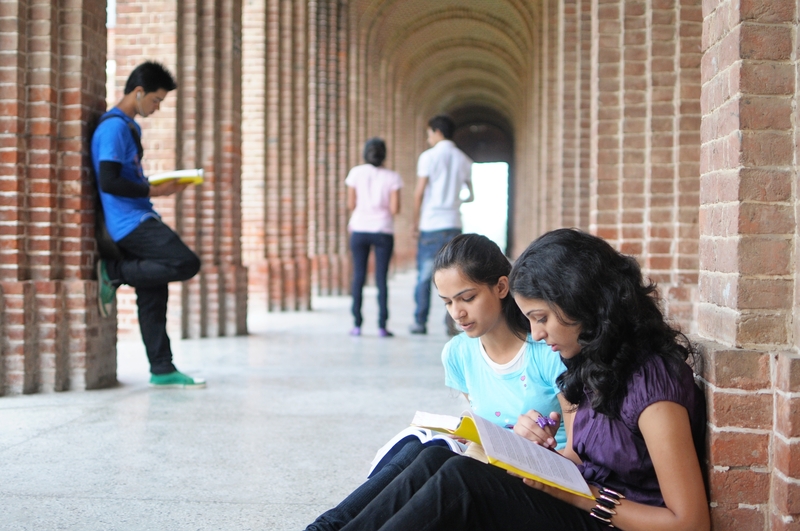Find out more about The Open University's Open degree qualification.
Tense parents and stressed children. A competitive high pressure home environment. Pressing kids to do well in school. Putting children through private tutoring and coaching classes with the aim of getting them into grammar schools and prestigious universities. Anxiety about educational achievement hangs over the parent–child relationship among South Asian families to the detriment of the child’s overall development. It is not uncommon to come across such a stereotypical impression about behaviour of South Asian parents. How true is such a view and how much of it is a perception? I am not an academic expert on this issue to answer this conclusively. Apart from parental influence and the importance of parent–child relationships for the rest of their lives, there are many other factors that drive children’s choices as they grow, particularly during adolescent years and life stages beyond that. Parenting among South Asian families is as varied as it comes generally in society.
My wife and I have raised our two sons. The eldest is twenty-nine years old and the youngest is twenty. Being parents to them has been a joyful experience. There are clear boundaries of knowledge and ignorance between me and my sons. They know a lot more about world football and basketball (the US NBA) than I would ever know in five lifetimes (like many Indians it is not surprising to travel through multiple lives in our imagination!). Over their respective life spans both have decided on many matters including their educational journeys. In this short piece I reflect on parenting in a personal way and this narrower range of children’s education and learning while noting parenting is lot more than this.
I was born and lived my first twenty-eight years of life in a refugee camp on the outskirts of a mid-western city in India. I still have deep connections with the city and my family in India. I have been teaching in universities for the past thirty-three years. These experiences must have influenced my parental behaviour hence why I mention these.

The first few years I found myself and my wife as accidental teachers for our children. They copied what we said and started learning language for example. Some fundamental social skills were nurtured by us, and others were imitated by them. Those lifesaving dos and don’ts instructions in early childhood that all parents give are the foundation for survival and enablers of learning for the rest of life. Although such instructions if not good also do harm to a child’s development. Responding to their incessant series of questions may be a challenging parental task but it all was necessary to retain the curiosity and enthusiasm of children to discover new things. Learning is lifelong while conventional understanding about formal education is that it starts in the school and ends with a university or school qualification. As a parent I focused on the learning as an outcome rather than formal qualification. This manifested in taking a light touch approach to discussion about choice of schools they went to.
The elder one went to pre-school in Manchester but years one to seven in a school in India. I did not worry whether the school was seen as elite. My main concern was a safe environment in the school and where teachers would not put too much pressure on him to do well in exams. The latter expectation is asking too much in most Indian schools where the obsession with ranks in the examinations is stronger and higher than Mount Everest. The teacher and peer pressure for the child and from social groups for parents is enormous. My eldest son suffered a double whammy. His teachers and our social reference group assumed that because I was a highly accomplished professional and educated, my son would be bright and be among the top. I found that expectation as unacceptable pressure for him. I never put such pressure on him. He was perhaps the only child in his class who did not attend tuition classes outside the school. Our family friends and well-wishers would question if that was wise. Fortunately, we had the chance to relieve ourselves of those social pressures when we moved to the UK.

Both our sons went to council schools in Milton Keynes. Again, we put no pressure on them to prepare for grammar schools or to aspire to be at the top. The aim throughout was that they must enjoy school life, explore things, and live a normal life. At home though, a bit consciously and a bit swayed by my own interest in lifelong learning, they have seen a range of books accumulated for different age groups as they have grown and on very diverse subjects. We thoroughly enjoyed reading books for them and with them and laughed a lot. There is a joke in our family that whenever I read a book to my son, I fell asleep, and he would get up and go to his mother declaring his victory of putting his father to sleep.
Their choices about the universities and subjects have been part of family discussion and our parental involvement has been non-assertive guiding and supportive. For me mostly it has been restricted to chauffeuring them between university and home, particularly for the elder one who was not far from Milton Keynes for his first masters. I believe the burden of parental expectations in the formative years suppresses natural curiosity and spirit of experimenting. A supporting and encouraging attitude has been mine and my wife’s approach. I hope our sons have experienced it so.
My eldest son did two masters in astrophysics from Royal Holloway and Toronto University and a PhD in theoretical physics from the University of Oxford. My younger son has just completed the second year of his honours degree in economics at Manchester University.
.jpg)








Rate and Review
Rate this article
Review this article
Log into OpenLearn to leave reviews and join in the conversation.
Article reviews